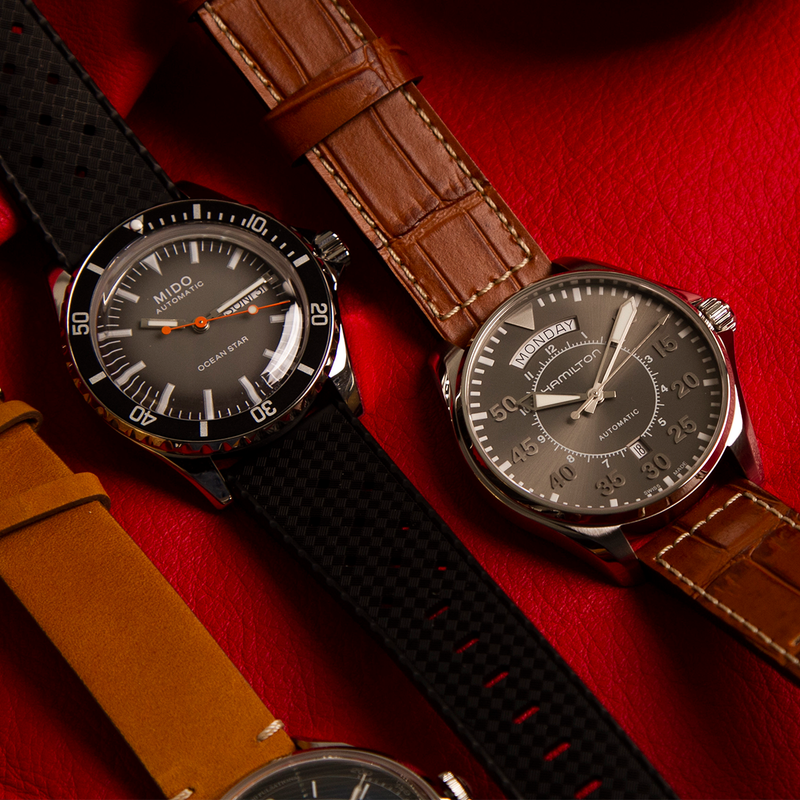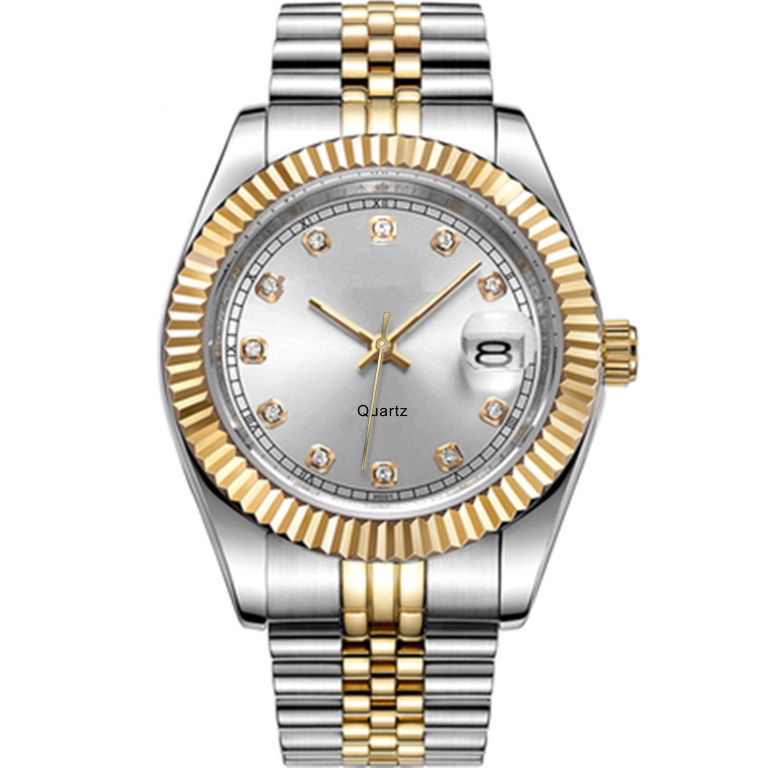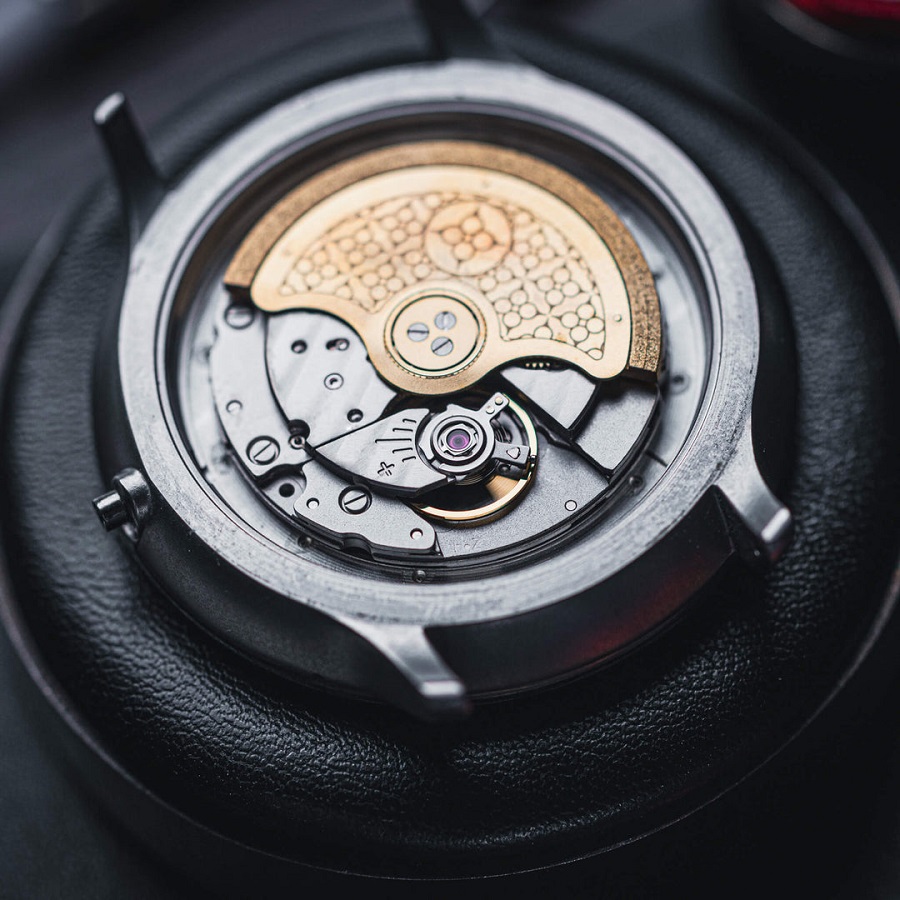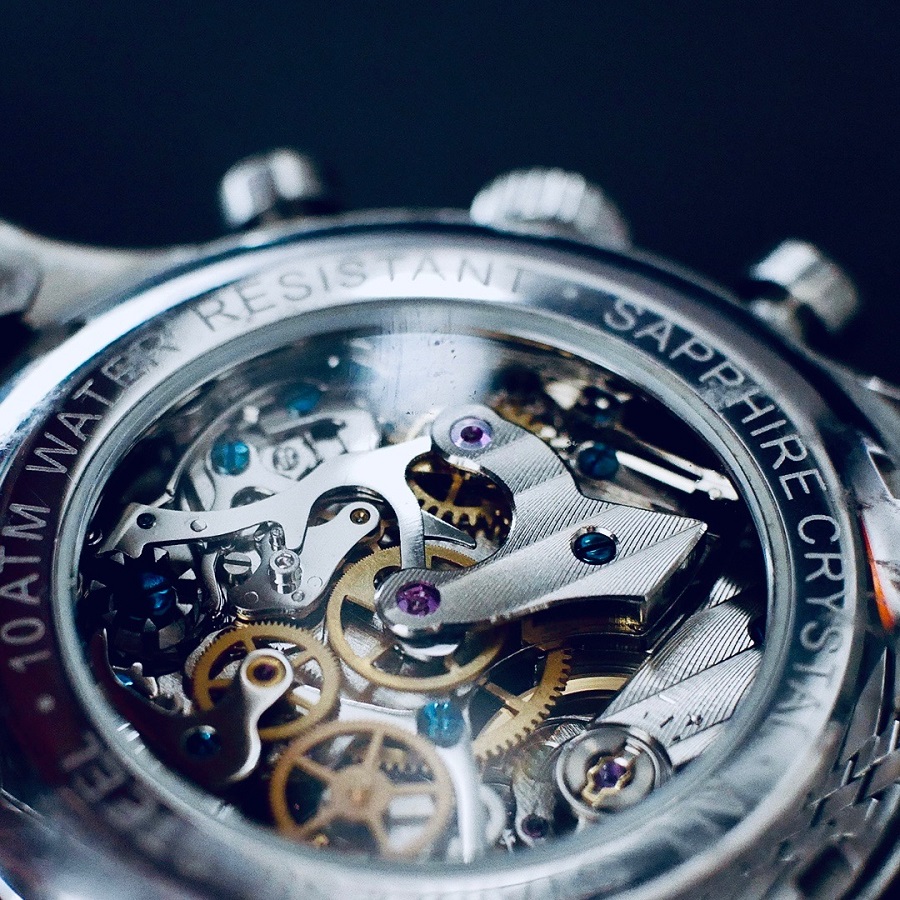Introduction to Quartz and Mechanical Watches
When choosing a new timepiece, understanding the difference between quartz and mechanical watches is key. Quartz watches are known for their precision and convenience, powered by batteries that send current to a quartz crystal. This process produces oscillations that keep accurate time. Mechanical watches, in contrast, harness the energy of a wound spring, released through gears and levers, to mark time. These watches can be manual, requiring daily winding, or automatic, winding themselves as you move. The choice between quartz and mechanical often comes down to personal preference, lifestyle, and appreciation for watchmaking craft. Each type has its merits, whether it’s the reliability and accuracy of quartz or the traditional charm and craftsmanship of mechanical watches. In the following sections, we’ll delve deeper into the mechanics, maintenance, accuracy, and value of both types, helping you decide which watch aligns with your needs and interests.
 Understanding Quartz Watch Mechanics
Understanding Quartz Watch Mechanics
Quartz watch mechanics are simple but effective. At the heart of every quartz watch is a tiny crystal made of quartz. This crystal is key to its function, acting almost like the watch’s heartbeat. When a battery sends an electrical current through the quartz crystal, it vibrates. These vibrations are consistent and occur at a fixed frequency. A quartz watch counts these vibrations to keep time accurately. An integrated circuit (IC) monitors the vibrations and converts them into regular electric pulses. These pulses drive a small motor that turns the watch’s hands. This process is highly efficient, leading to the remarkable precision of quartz watches.
Most quartz watches use a small battery as their power source. The battery’s lifespan can range from one year to several, depending on the watch’s design and functionality. Some watches feature indicators that tell when the battery is low. This gives you time to replace the battery without losing accurate time. Due to fewer moving parts, quartz watches generally require less maintenance aside from occasional battery changes.
Overall, quartz watch mechanics offer a hassle-free experience with outstanding accuracy. They provide a practical choice for those who value promptness and simplicity in their timepieces.
Delving into Mechanical Watch Functionality
Mechanical watches are complex works of art. Inside, a meticulously arranged series of springs and gears work in harmony. This network is driven by the energy of a wound spring. As the spring slowly unwinds, it releases energy. This energy powers the movement of the hands across the timepiece’s face.
In mechanical watches, precision comes from the balance wheel, a component that oscillates at a steady rate. This back-and-forth motion, regulated by a hairspring, keeps the gears moving at a constant pace. The wheels’ interaction results in the smooth sweep of the second hand that watch enthusiasts love.
There are two types of mechanical watches: automatic and manual. Manual watches need daily winding by the user. You turn the crown, and this tightens the mainspring. Automatic watches, on the other hand, self-wind with the wearer’s movements. A weighted rotor inside the watch spins as you move your wrist, winding the mainspring.
Automatic watches offer convenience since they wind themselves. But, if not worn regularly, they stop and require a manual wind. Both types bring a sense of tradition and craftsmanship that many watch lovers seek. They stand as a tribute to the ingenuity of watchmaking history.
Battery Life and Maintenance Considerations
When assessing a watch, battery life and maintenance are crucial factors. Quartz watches, powered by batteries, often need a change every one to five years. This varies with watch design and usage. Most need a new battery in two to five years. Low battery indicators in some models prevent sudden stops, alerting you early.
Quartz watch maintenance is simple due to fewer moving parts. Regular battery changes are the main upkeep needed. Automatic mechanical watches, however, might never need a battery but require more care. They depend on the mainspring, which needs winding through movement or manually. If an automatic watch isn’t worn often, it will stop and need resetting.
Mechanical watches also need lubrication to keep their intricate parts running smoothly. Service is typically suggested every three to five years. This involves cleaning, oiling, and adjusting the watch mechanism. In comparison, servicing a quartz watch often just involves replacing the battery and checking the seals.
Overall, if you are a low-maintenance individual who values convenience, a quartz watch could be ideal. If you appreciate the craftsmanship and are willing to invest time in maintenance, a mechanical watch could be your choice. Both have unique advantages in terms of battery life and maintenance considerations. The choice aligns with your lifestyle and personal watch-wearing habits.
Comparing Accuracy and Performance
When it comes to watches, accuracy and performance are often top concerns. Both quartz and mechanical watches offer particular advantages in these areas, though they operate differently.
Quartz Watches: Precision Pioneers
Quartz watches are renowned for their precision. Their timekeeping is powered by a battery and regulated by the steady vibrations of a quartz crystal. This leads to exceptional accuracy, with most quartz watches losing only a few seconds per year. Digital or analog, quartz watches deliver consistent performance. Their reliability is due to fewer parts that are prone to wear. They operate well until the battery needs changing, making them a great fit for those who count on pinpoint precision.
Mechanical Watches: The Graceful Aging Performers
Mechanical watches, especially automatic ones, are lauded for their traditional craftsmanship. However, their timekeeping can be less precise than quartz. They tend to drift a few seconds per day, which adds up over time. They perform best when freshly serviced and carefully maintained. Automatic watches may require regulation to keep their best time. While slightly less accurate, they exhibit a smooth sweep of the seconds hand. This ‘sweep’ is a characteristic cherished by enthusiasts. As the lubricants age, the performance can dip, but with proper care, longevity is usually outstanding.
In the end, if you seek performance with little to no maintenance, quartz is often the way to go. For those who respect time-honored mechanics and don’t mind the upkeep, a mechanical watch might check the right boxes.
The Reliability and Longevity Debate
When it comes to watches, reliability and longevity are often significant factors in the debate between quartz and mechanical types. Each has attributes that might make it the preferred choice, depending on what a wearer values most. Let’s take a closer look at how quartz and mechanical watches stack up in these areas.
Quartz Watches: The Dependable Choice
Quartz timepieces are synonymous with dependability. Their simple construction with fewer moving parts results in a robust and shock-resistant design. This makes them less susceptible to the wear-and-tear that can affect precision over time. Quartz pieces generally maintain the same level of accuracy throughout their lifespan, as long as the battery is functioning. With regular battery replacements every few years, these watches can serve well for long periods, offering consistent performance and reliability.
Mechanical Watches: Enduring Craftsmanship
Mechanical watches, on the other hand, are celebrated for their longevity and the craftsmanship that goes into making them. Despite being less accurate out of the box when compared to their quartz counterparts, they are hugely valued for their complexity and the beauty of their construction. With proper maintenance, a mechanical watch can last decades, even generations. The intricate workings can be serviced and parts replaced, ensuring that a well-cared-for mechanical watch continues to function and even become a cherished heirloom.
Both types of watches can be reliable and provide long service if treated well. Quartz watches offer steady reliability day-to-day, while mechanical watches provide longevity through their ability to be maintained and repaired. Your preference might hinge on whether you prioritize the hassle-free long-term accuracy of quartz, or the aesthetic and heritage that come with a mechanical watch’s enduring nature. In the end, both can be reliable companions, telling time through the years.
Price Points and Value for Money
When considering a new watch, price and value are often key factors. Quartz watches tend to be more affordable due to simpler construction and mass production methods. The price for a basic quartz watch can start very low, making them accessible compared to mechanical watches. High-end quartz models do exist but are generally less expensive than luxury mechanical watches.
Mechanical watches often come with a higher price tag. Their intricate designs and manual assembly contribute to the cost. However, mechanical watches often hold their value over time and can even become collector’s items. They offer a sense of luxury and tradition that many watch enthusiasts are willing to pay for.
Value for money isn’t just about the initial purchase price. It also includes maintenance costs and longevity. Quartz watches have lower maintenance costs, only needing battery changes. Mechanical watches require regular servicing, which can be expensive, but they can last for generations if maintained properly.
In conclusion, quartz watches offer a cost-effective, low-maintenance option, often representing good value for money. Mechanical watches are an investment; their value extends beyond functionality to craftsmanship, heritage, and potential to become family heirlooms.
Personal Preferences and Watch Collecting
When considering quartz vs mechanical watches, personal preferences play a crucial role. Every watch wearer has unique tastes, driven by lifestyle, aesthetics, and the value they place on craftsmanship. Some prefer the convenience and precision of quartz watches for daily wear. Others treasure the mechanical watch for its timeless elegance and intricate design. Collectors often seek mechanical pieces, seeing them as investments or heirlooms. Watch collecting itself becomes a passion, with mechanical watches often at the heart. Ultimately, the choice between quartz and mechanical is deeply personal. It reflects one’s appreciation for the art of watchmaking or a desire for practical timekeeping. Whether for collection purposes or everyday practicality, your watch should resonate with your sense of style and function.


